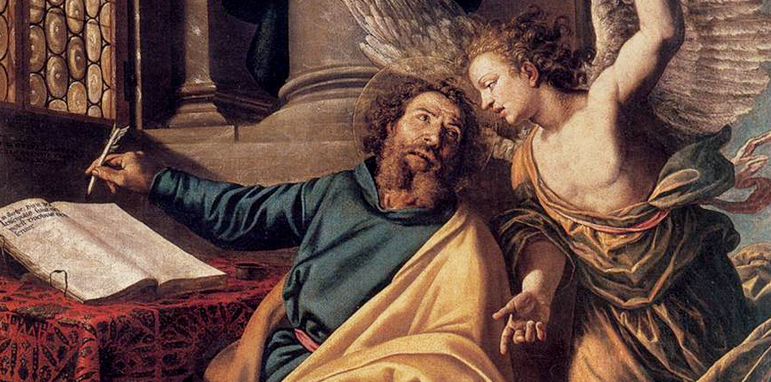Matthew the Apostle
Matthew was the son of Alphaeus born at Capernaum, a settlement on the shore of the Sea of Galilee , about a year after the birth of Jesus. One day Jesus was walking and saw a tax collector named Matthew sitting at a tax collection post, and said to him, "Follow me." And Matthew stood up and followed Him, and became one of His twelve apostles. (See M 9:9-13 = P 2:13-17 = L 5:27-32)
Tax collectors in those days were social outcasts. Devout Jews avoided them because they were usually dishonest. The job carried no salary, and they were expected to make their profits by cheating the people from whom they collected taxes. Patriotic and nationalistic Jews hated them because they were agents of the Roman government, the conquerors, and hated them with a double hatred if (like Matthew) they were Jews, because they had gone over to the enemy, had betrayed their own people for money. Thus, throughout the Gospels, we find tax collectors (publicans) mentioned as a standard type of sinful and despised outcast. Matthew brought many of his former associates to meet Jesus, and social outcasts in general were shown that the love of Jesus extended even to them.
After his calling, when Saint Matthew gave a feast in Christ's honor, the guests were drawn from among his friends—including fellow tax collectors and sinners (Matthew 9:10-13). The Pharisees objected to Christ eating with such people, to which Christ responded, "I have not come to call the just, but sinners," summing up the Christian message of salvation.
The name "Matthew" means "gift of the LORD." Mark and Luke, in the story of his calling, name him "Levi." Perhaps this was his original name, and he received a new name from Jesus when he became a disciple. It has also been suggested that he was simply a member of the tribe of Levi.



























